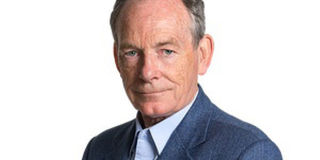The horrific abuse of sports stars exposes social media mob rule

After covering last Saturday’s Wales-England rugby match, the BBC’s reporter Sonja McLaughlan found herself sitting in her car in tears. She had received a torrent of sexist obscenities and abuse on social media. “Toxic, embarrassing, disgraceful, appalling,” she said.
She was not alone. After apparently being glimpsed on video absent-mindedly not applauding the Welsh team after the same match, the England player Ellis Genge suffered death threats.
The two join other sporting figures awaiting the anger of a rhetorical mob, rallied by others on Twitter, Facebook and Instagram.
They currently include the rugby league referee James Child, the football pundit Karen Carney, the Swiss eSports presenter Soe Gschwind-Penski and countless players who endure terrible abuse for doing their jobs.
Those are the women, mainly and not racial. There has been more sickening attacks on sports stars in the recent past, with football fans increasingly taking the dirty path in using racism to vent whenever results of their team do not go their way.
Just last week after their FA Cup humbling at Leicester, Manchester United’s Brazilian midfielder Fred found himself a victim of vile racial abuse on social media. His only crime was giving away the ball – under intense pressure after being put in a very awkward situation by captain Harry Maguire – that led to one of the goals against his team.
Fred’s United teammates Marcus Rashford, Axel Tuanzebe and Anthony Martial have all been targeted, alongside Romaine Sawyers of West Bromwich Albion and Chelsea’s Reece James.
An easy response is to say that sport is high-profile theatre subject to wild emotions. Players and officials have been insulted throughout history.
Sport has long been an outlet, even a safety valve, for communal feelings sublimated in other walks of life. If you can’t take the heat, stay out of the kitchen – or the nearest pub.
An increasing number of sensible people do just that. They decline to use social media and stick to more private channels when discussing sport. But social media is not pub banter.
It is a permanent record of disturbed and nasty thoughts beamed to the entire world. It is a global market place for gossip, comment and abuse, a forum and a platform. It embodies the coward’s best friend: anonymity.
We all know that Twitter and Facebook claim not to be publishers, and not to be responsible for what appears on their platforms. But as is now clear, if others choose to broadcast the foul language of the football terrace on social media, it is very much their business.
The fact that these platforms employ content moderators shows they regard themselves as publications in a similar sense to newspapers or broadcasters. The issue is not technology, but content.
If the Guardian filled its pages with fake news, false accusations and abuse of named individuals, it would spend its days permanently in court, as would the BBC and other media outlets. Social media is mass media. Regulation has merely not yet caught up with it, as eventually it did with newspapers.
The sort of obscenity now being splattered over the airwaves on social media will simply be banned when politicians have the guts to talk truth to the power of money. Reforms such as filtering material before publication and curbing anonymity will be complicated to enforce.
Meanwhile, our grandchildren will ask why it took us so long – and caused so much hurt – before we brought civility to bear on the new medium, and gave sport back its dignity.
Mr Simon Jenkins is a columnist with The Guardian. This is a slightly edited version of the original article published by Guardian




